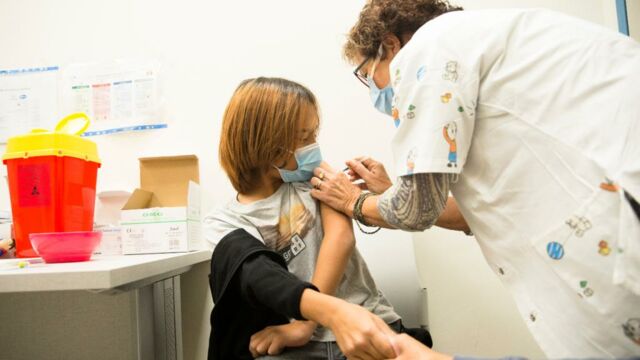From today (17 January), youngsters aged 16 and 17 are eligible to receive a COVID booster shot. Here are the possible side effects that the target group could experience after being jabbed.
Discover our latest podcast
New jab announcement
When the national booking service begins, around 40,000 youngsters will be eligible for their third dosage.
This immunization requires two doses, three weeks apart. The second dosage can be given up to six weeks after the first if necessary. This immunization is 91 percent effective in preventing severe COVID infection in those aged 16 and above.
Dr Nikki Kanani, GP and deputy lead for the NHS vaccination programme, says:
COVID has caused so much disruption for so many families over the past two years, affecting young people's lives and education, and getting vaccinated protects them, their family and their friends, letting them stay at school and continue socialising.
Booster side effects
For those aged 16 and up, the following are the reported as the likely side effects of the shot:
- Pain where the shot was given
- Fatigue
- Headache
- Chills
- Muscle pain
- Fever
- Joint pain
- Swollen lymph nodes
- Nausea
- Decreased appetite
Mayo Clinic adds:
Similar to adults, children have side effects within 2 days after vaccination that typically last 1 to 3 days. More children reported these side effects, except for injection site pain, after the second dose of the vaccine. However, some people have no side effect.
According to NHS, you can now book your booster appointment through the online portal or at the nearest walk-in site.
Health and Social Care Secretary Sajid Javid adds:
More than four in five adults in England have already been boosted, helping to protect them from severe illness and reduce the pressure on the NHS in the face of Omicron.















